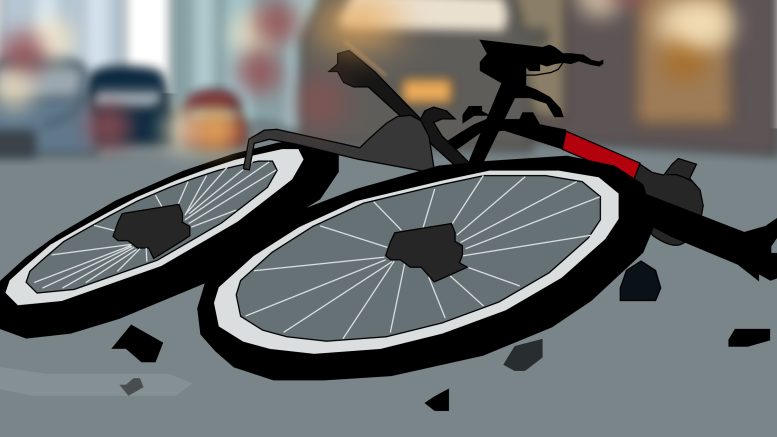A series of cycling and pedestrian deaths, including a senior, a teen and two Indigenous women, sparked outrage amongst the local cycling community this summer. Poor city planning, toxic car culture and built-in racism within our transportation system have fueled fingers pointing toward city hall to make a change.
The summer of discontent began when commuter cyclist Rob Jenner was killed in early June on Wellington Crescent and Cockburn Street after a hit-and-run with a 19-year-old motorist, touching a nerve within the cycling community. Jenner’s family stated that he was safety conscious while cycling, as he loved it. Jenner’s death rallied the city, invoking a crowd of cyclists demanding safer conditions for cyclists.
Weeks after Jenner’s death, a teen was injured while cycling on Wellington and Academy road in July, sparking another protest. Winnipeggers called again to demand cycling safety in our streets while bringing signs with the slogans Whose kid is next? and Stop running us over.
Meanwhile, two Indigenous pedestrians were killed by automobile collisions, adding fuel to a combustible summer.
Doris Porter, a 49-year-old, was hit by an automobile near Redwood and Main in early August, and Tammy Bateman was hit by a Winnipeg Police car on Labour Day. Family members of both Porter and Bateman have demanded more thorough investigations by the police. A protest over Bateman’s death nearly turned tragic when a driver injured a cyclist and ran over their bike while attempting to drive through the protest.
By August, Winnipeg had more automotive collisions with pedestrians/cyclists causing death than in 2023, with eight pedestrians and two cyclists killed in 2024 versus five pedestrians and zero cyclists killed last year.
Not Necessarily The Automobile on 101.5 UMFM frequently featured one to two stories weekly involving a pedestrian severely injured or killed, sometimes making me, the host, numb. Due to my prior experience of being hit by a reckless driver a few years ago, the stories hit a nerve with me. Jenner’s death highlights the ongoing concerns with poor city planning, the lack of safe streets for cyclists and pedestrians and the toxic car culture. Drivers feel entitled to the roads, as transportation infrastructure is catered to cars. Entitlement bleeds into how car users treat pedestrians and cyclists. Cyclists in real life or on social media are either treated like second-class citizens or degraded just for riding a bicycle to get around or advocating for active transportation in our city.
Even a more undeniable trend noticed this summer is how pedestrian/cycling safety and systemic racism within our transportation system are built in. We can look to Rooster Town (now Grant Park), where Métis families were forced to leave by the City of Winnipeg in favour of suburban development. As an example, the reallocation of Indigenous peoples has impacted land use. Increased land use then increases sprawl and creates inefficient public transit services, which, in turn, increases city costs.Despite the city acknowledging these harms, we see systemic racism built into our transportation system.
The road construction of Kenaston Boulevard and Chief Peguis Trail would cost over $1 billion combined. These projects are funded instead of basic road repair in mature communities, completing our active transportation network or lowering adult bus fares (adult cash fares will reach $3.45 by 2026).
Analysis shows a higher use of public transportation by Indigenous peoples. Residents in Winnipeg’s downtown area, which has a high Indigenous, newcomer and immigrant population, regularly cycle. These statistics show that some of the most vulnerable communities in Winnipeg rely on public transportation and cycling to navigate their city.
Winnipeggers are waking up to see that Scott Gillingham and the city council do not have the confidence to solve issues, including safety and traffic, based on recent polls.
Pedestrian and cycling safety concerns will hibernate this winter but will rise again next spring. If cycling/pedestrian safety and a transportation system that continues to discriminate amongst the vulnerable are not addressed, the summer of discontent may lead many Winnipeggers to vote for change at city hall in 2026.
Adam Johnston hosts Not Necessarily The Automobile Thursdays at 11:30 a.m. on UMFM 101.5. He can be reached at [email protected].

